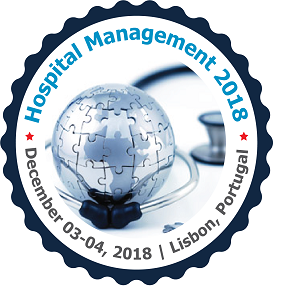
Biography
Biography: Antonio Jose Lopes de Almeida
Abstract
Justifi cation: Hospital management is always based on its quality cost structure, which are the costs linked to quality control in the production, logistics of a product or service. It should be borne in mind that it is necessary to maintain permanent investments not only to acquire quality but also to
maintain it. The costs of intensive care continue to rise (since the 1970s).
The implementation of protocols results in reduction of costs/gains for the patient, evidence-based practice results in gain, protocols for prevention of catheter-related infections and associated pneumonia, Mechanical ventilation, use of sedation and analgesia in the ICU, associated with weaning and inadequate use of antibiotics and nutritional support. Strategic management involves patient satisfaction, through "talent retention" (specialist nurse
maintenance) in order to achieve continuous improvement through training, in which alone it can achieve the success of an institution.
It should be noted that the technical qualifi cations of nurses must be taken into account. Theproportion of nurse/patient can be adjusted by taking into account the competencies or other health professionals.
Objective: To design basic knowledge in the area of business management applied to health, in the strategic planning approach of a nursing professional
Content: Literature review including models studied in the human knowledge area, as well as the basic requirements recommendations in the ICU as well as the structural and organizational aspects Conclusion: Professional training as a culture of prevention and the role of nurses in the development of prevention and control of infection are highlighted. Education continues with strategies to
implement more effective measures in the quest for quality of care. The basis of management is the education of the nurse and the care of the caregiver.

